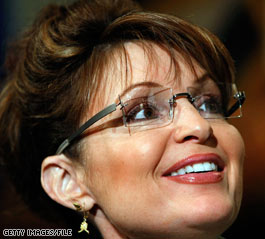Biden: Old Hand or Big Mouth?
Biden was a solid insider choice for an outsider Presidential candidate. It is a well-established paradigm. Many pundits argued that Obama needed a Cheney - arguably, Obama may have gotten a bit more Cheney then he would have hoped.
Cheney was the first elected VP in living memory who had no presidential aspirations. Previous active VPs were careful about managing their profile and appearance to protect their future political prospects. Mondale's influence is famously hard to assess because he was known for not leaving fingerprints on his initiatives. While Cheney was discreet, his unconcern about his public profile may have led him to be out front on some issues where a lower profile would have been wise.
Cheney however, was a staffer and could bring that view to the Vice Presidency. Biden, like Cheney, is an unlikely future President (barring tragedy.) If Obama wins the election, Biden will be 74 in 2016. Biden is a loquacious Senator, not used to playing second fiddle. Biden also loves (his own) ideas and may go public with them when discretion would be wiser. Come to think of it, Biden may be a new Rockefeller (see the end of my last post.)

Palin: At the Kid's Table?
The challenges facing Palin's ability to play a role in the administration are substantial. (See this blog's very first post.) McCain is an insider, so he has a gaggle of long-serving staffers who will tend to protect their turf. The last insider President was Bush 41, and while Quayle (despite his public standing) was knowledgeable and respected in the Senate on national security issues - he exercised minimal influence on the Bush administration. A former CIA director and UN Ambassador, Bush 41 did not really need Quayle's input. And if Bush did need foreign policy advice he could turn to his long-time friends Jim Baker and Brent Scowcroft.
The last outsider VP was Spiro Agnew, who, again, exercised no serious influence (granted, he did have, ahem, personal limitations - but the Nixon staffers froze him out as well.)
The prospect of the VP becoming President is a real one, so it is important that the VP be engaged in the process so that (unlike Harry Truman) they can take the reins of national security relatively smoothly.
Palin faces huge challenges of having minimal national security experience and of probably not being taken into the inner circle.
One solution would be to allow Palin to chair a component of the National Security Council (Bush 1 was vice chair* of the Crisis Management Committee at Reagan's NSC) in order to embed her in the process. The problem there is that she may not do a capable job. If the President is forced to remove the VP from a position, it will leak out. Perhaps establishing a sort of national security apprenticeship in which the VP plays an active role on this sort of committee and then moves into the chair would be a compromise.
It will be a serious issue that the McCain will have to address, both in the campaign and if there is a McCain administration.
*The President is always Chair, but doesn't always go to the meetings.
1 comment:
"Jim Baker and Brent Scowcroft"
And let's not forget about Condi, she was Scowcroft's protege during Bush Sr.'s term. Further, when Bush Sr. was head of CIA, people on the inside made sure to keep him out of the loop; so he wouldn't be tainted with any scandals. This was done to protect his chance of being a future president. And as for W., though he didn't have any foreign policy experience, he was tutored by (a year prior to his decision to run for the White House) his dad's friends: Condi; Scowcroft; Prince Bandar...et al. Palin is a very poor decision of McCain, I feel. --Kelly Yip
Post a Comment